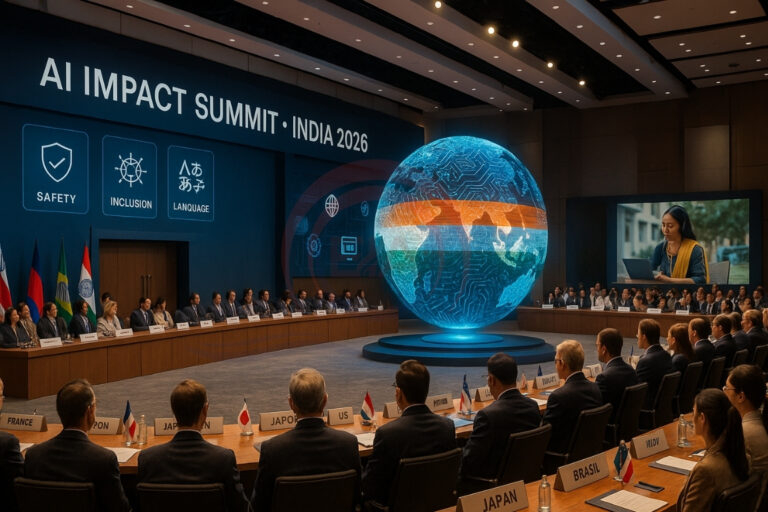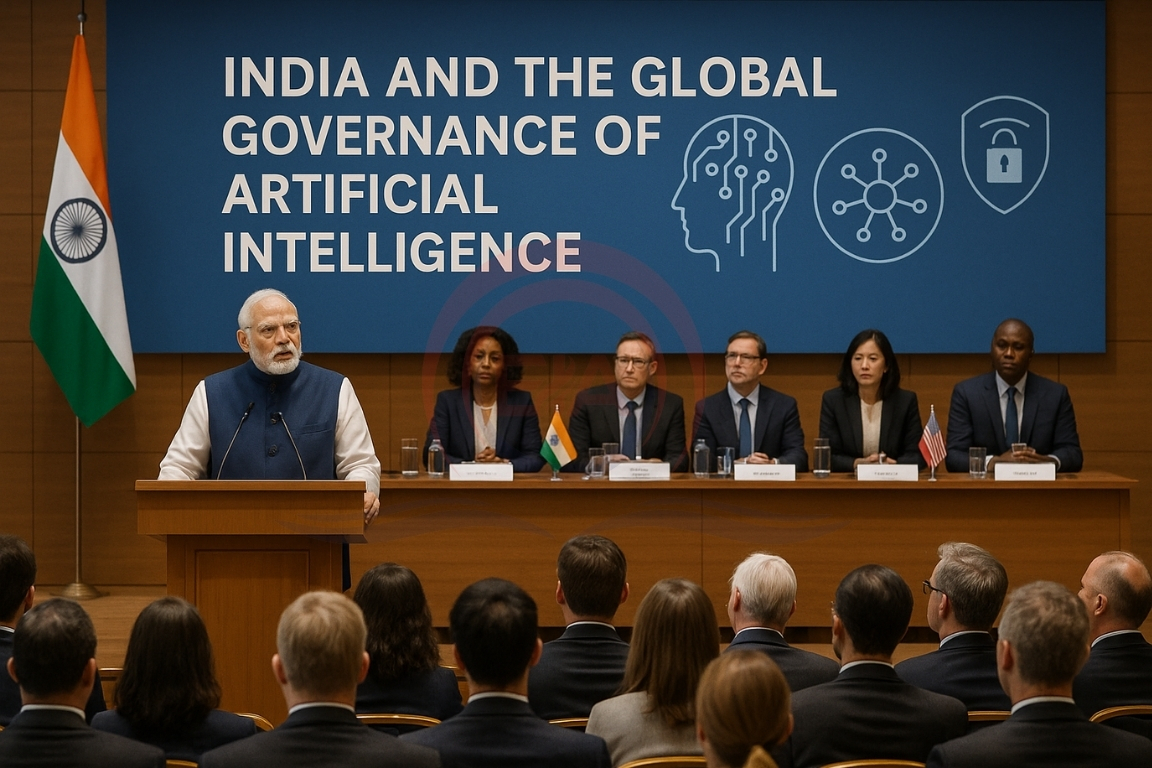India is set to host the AI Impact Summit in February 2026, aiming to promote inclusive and ethical AI governance, at a time when global efforts are fragmented and contested.
India’s Opportunity in Global AI Leadership
- With AI reshaping economies and societies, India has a unique chance to shape global AI policy that reflects equity, safety, and access, especially for the Global South.
- In contrast to the divisions seen at recent summits (like Paris 2025), India can act as a bridge-builder among conflicting powers.
India’s Democratic Approach to AI Governance
- Inclusive National Consultations: The Ministry of Electronics and IT invited public input via the MyGov platform, engaging students, startups, researchers, and civil society.
- The focus: AI for development, equity, and sustainability.

Proposals India Can Champion at the Summit
- Public Pledges & Scorecards: Governments, companies, and institutions could commit to one impactful AI goal (e.g., using AI to spread health information in local languages or free AI courses for rural students).
- Empowering the Global South: Ensure diverse participation from developing countries. Propose an “AI for Billions Fund” to support language datasets, fellowships, and cloud access.
- AI Safety Collaboration: Create a shared framework for stress testing high-risk AI models. Launch an open-source toolkit for evaluating bias, robustness, and safety.
- Middle Path on Regulation: Advocate a voluntary AI Code of Conduct, balancing innovation and safeguards. Encourage transparency, such as sharing risk assessments and usage data.
- Preventing Global Fragmentation: Avoid a divided AI ecosystem. Ensure the summit promotes shared values and global cooperation.
Conclusion:
India cannot build a global AI body alone but can connect existing efforts. If it turns this summit into a platform for progress, India can emerge as a moral and strategic leader in the AI era.





